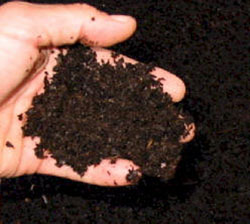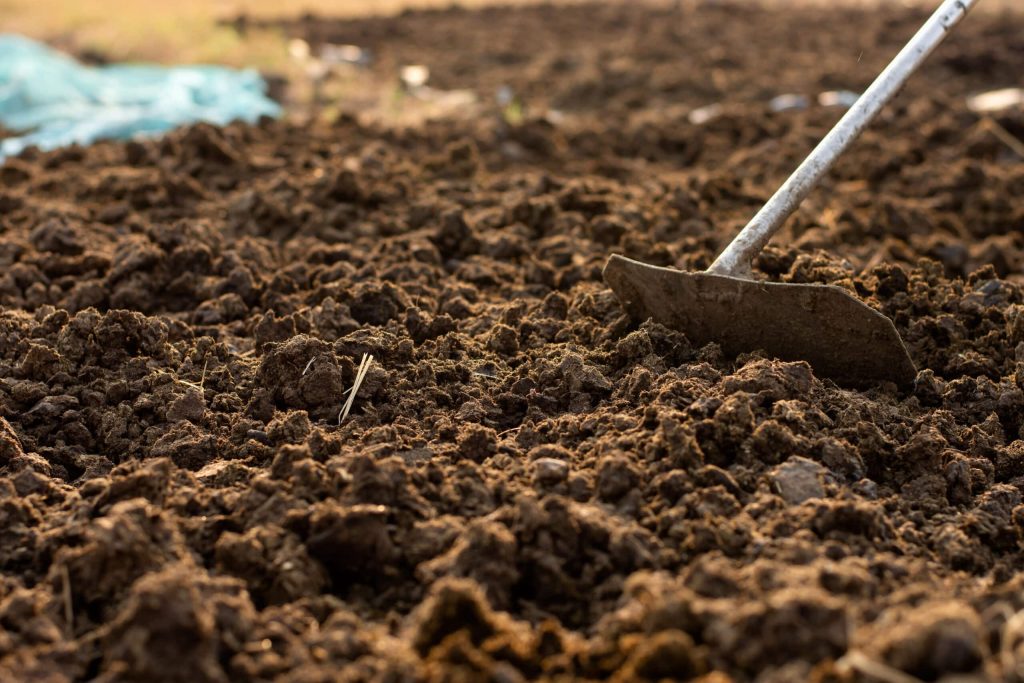Are you looking to boost your garden’s productivity naturally? Cow manure might just be your secret weapon.
But before you start spreading it around, understanding how to use it safely is crucial. The last thing you want is to harm your plants or compromise the health of your soil. By unlocking the full potential of cow manure, you can enrich your garden, promote plant growth, and even enhance the nutritional quality of your produce.
Curious to learn how to do this without any hiccups? You’re in the right place. Stick with us as we unravel the secrets to using cow manure effectively and safely in your soil. Your garden will thank you.

Benefits Of Cow Manure For Soil
Cow manure is a valuable resource for soil enrichment. It offers nutrients that enhance plant growth and soil health. Many gardeners and farmers use it as a natural fertilizer. Understanding its benefits can help you make the most of this organic option.
Rich Source Of Nutrients
Cow manure contains essential nutrients like nitrogen, phosphorus, and potassium. These elements are vital for plant growth. They help in root development and improve soil fertility. This nutrient boost can lead to healthier plants and better yields.
Improves Soil Structure
Cow manure helps improve soil texture. It makes heavy soil lighter and enhances drainage. This change allows roots to breathe and absorb water more effectively. The improved structure aids in preventing soil erosion.
Enhances Microbial Activity
Microorganisms thrive in manure-rich soil. They break down organic matter, releasing nutrients slowly. This process keeps the soil healthy over time. A vibrant microbial ecosystem supports plant growth and soil sustainability.
Increases Water Retention
Cow manure improves the soil’s ability to hold moisture. This is crucial during dry periods. Plants can access water more easily, reducing stress. Proper water retention leads to consistent growth and higher productivity.
Organic And Eco-friendly
Using cow manure reduces reliance on chemical fertilizers. It is a sustainable choice that benefits the environment. This natural option contributes to healthier ecosystems. Making eco-friendly choices supports long-term soil health.
Preparing Cow Manure For Use
Preparing cow manure for soil use requires careful attention to safety. Composting manure reduces harmful bacteria and enhances nutrient content. Incorporating aged manure into the soil improves fertility while minimizing risks to plants.
Preparing cow manure for use in your garden is a crucial step to ensure it benefits your soil without causing harm. Using manure directly from the farm may seem tempting, but it can introduce harmful pathogens and seeds into your garden. Proper preparation not only enhances its nutrient availability but also ensures your plants grow healthy and strong. ###Composting Cow Manure
Composting is a reliable way to prepare cow manure for your garden. By composting, you allow the manure to break down over time, which kills harmful bacteria and weed seeds. A simple compost pile in your backyard can do wonders. Mix cow manure with carbon-rich materials like straw or leaves. Turn the pile regularly to allow air flow and speed up the decomposition process. You’ll know it’s ready when it turns into a crumbly, dark-brown substance with an earthy smell. ###Choosing The Right Location
Where you compost your cow manure is as important as the process itself. Choose a spot that is away from water sources to prevent contamination. The location should have good drainage to avoid waterlogging, which can slow down decomposition. Ensure it’s accessible yet discreet, as compost piles can sometimes attract pests if not managed properly. ###Understanding Curing Time
How long should you let your manure compost before using it? Generally, composting cow manure takes about six months to a year. This curing time allows for the breakdown of any potential pathogens and stabilizes nutrients. If you’re in a colder climate, it might take longer due to slower microbial activity. Keep an eye on the texture and smell to determine readiness. ###Testing Manure Quality
Before applying manure to your soil, it’s wise to test its quality. You can use a simple soil test kit to check for nutrient levels. This will help you understand how much manure your soil needs and avoid over-fertilization. A balanced nutrient profile is key to a thriving garden. ###Considering Personal Experience
From my experience, using cow manure in my vegetable garden transformed the yield significantly. Initially, I was skeptical about the smell and potential pests. However, after following proper composting techniques, the end product was rich and odorless. My tomatoes and cucumbers thrived, with fewer pest issues than before. Have you ever tried using composted cow manure in your garden? The results might surprise you. ###Safety Measures
Safety should always be a priority when handling manure. Always wear gloves and wash your hands thoroughly afterward. Avoid using fresh manure directly on plants to prevent burning or contamination. Keeping these simple measures in mind will ensure a safe and productive gardening experience. Using cow manure can be a game-changer for your garden if done correctly. Proper preparation not only safeguards your plants but also enriches your soil, setting the stage for a bountiful harvest. What steps will you take to prepare your cow manure for use?Application Techniques For Manure
Cow manure enriches soil with essential nutrients. Properly compost it to eliminate pathogens and odors. Apply evenly to prevent nutrient overload and ensure healthy plant growth.
Using cow manure as a soil amendment can significantly boost the health and productivity of your garden. However, applying it correctly is crucial to avoid harming your plants or the environment. Let’s delve into some practical application techniques that will help you make the most of this natural resource while ensuring safety and sustainability.Composting Before Application
Composting manure before using it in your garden is one of the safest application techniques. This process helps reduce pathogens and weed seeds, making the manure safer for your plants. To compost, simply mix the manure with other organic materials, such as leaves or straw, and let it decompose over several months.Direct Application
If you’re eager to use manure directly in your garden, timing is key. Apply it during the fall, allowing it to break down over the winter months. This gives the manure enough time to decompose and integrate with the soil, minimizing the risk of burning your plants.Using Manure As A Side Dressing
Another effective method is using manure as a side dressing for established plants. This technique involves placing the manure around the base of the plants, away from the stems. It provides a steady release of nutrients without overwhelming the plants.Incorporating Into Raised Beds
For those with raised beds, mixing manure into the soil is an excellent way to improve soil structure and fertility. Thoroughly blend the manure into the top layers of your soil before planting. This ensures even distribution and maximizes nutrient availability.Manure Tea For Liquid Feeding
Have you ever considered making manure tea? It’s a liquid fertilizer made by steeping manure in water. Strain the mixture and use it to water your plants. This method provides nutrients directly to the roots, promoting healthy growth.Monitoring And Adjusting Application
After applying manure, keep an eye on your plants and soil. Notice any changes in plant health or soil texture? Adjust your application rates accordingly. It’s a dynamic process that requires observation and adaptation. Applying cow manure safely requires careful consideration and thoughtful techniques. Which method do you find most intriguing? Share your thoughts and experiences in the comments below!
Safety Precautions In Handling Manure
Using cow manure in soil enriches nutrients but requires care. Wear gloves and a mask to prevent contamination. Composting manure before use reduces harmful bacteria, ensuring safe plant growth.
Cow manure enriches soil with nutrients, enhancing plant growth. Yet, handling it safely is crucial. Improper handling can harm health and the environment. By understanding safety precautions, you ensure a safe and effective gardening experience.Wear Protective Gear
Always wear gloves when handling manure. They protect your skin from bacteria. Consider using a face mask to avoid inhaling dust particles. Protective footwear keeps your feet safe from contamination.Ensure Proper Storage
Store manure in a cool, dry place. Use a covered container to prevent flies and odor. Keep it away from water sources to avoid contamination.Wash Hands Thoroughly
After handling manure, wash your hands with soap. Use warm water for effective cleaning. This reduces the risk of spreading bacteria.Keep Children And Pets Away
Manure should be out of reach for kids and animals. They might ingest harmful bacteria. Ensure the storage area is secure.Compost Before Use
Composting manure reduces harmful pathogens. It stabilizes nutrients, making them safe for plants. Ensure the compost pile reaches adequate temperature.Use Proper Application Techniques
Apply manure to the soil, not the plants. Direct contact with plants can burn them. Spread evenly to avoid nutrient overload.Monitor For Health Symptoms
Watch for signs of illness after handling manure. Symptoms might include nausea or skin irritation. Seek medical advice if symptoms persist.
Conclusion
Cow manure enriches soil and boosts plant growth. Proper use ensures safety. Compost before use to kill harmful bacteria. Spread evenly for balanced nutrients. Avoid using fresh manure directly on plants. Let it age for at least six months. This prevents root burn and harmful pathogens.
Keep an eye on plant response. Adjust the amount based on growth. Testing soil regularly helps maintain balance. Experiment with small amounts first. Gradually increase as needed. With care, cow manure can be a valuable ally in your gardening efforts.
It nurtures healthy soil and vibrant plants.



